
Finnish composer Antti Tolvi's 72-minute realization of Morton Feldman's Intermission 6 transforms the brief 1953 piano score into an extended meditation on sound and silence, his patient, quietly unpredictable interpretation revealing the work's subtle randomness and serene depth, evoking Feldman's later explorations of duration and near-stillness.
In Stock
Quantity in Basket: None
Log In to use our Wish List
Shipping Weight: 3.00 units
EU & UK Customers:
Discogs.com can handle your VAT payments
So please order through Discogs
Sample The Album:
Morton Feldman-composer
Antti Tolvi-piano
Click an artist name above to see in-stock items for that artist.
Label: Another Timbre
Catalog ID: at241
Squidco Product Code: 36799
Format: CD
Condition: New
Released: 2025
Country: UK
Packaging: Cardboard Gatefold
Recorded in Westers, in Kiila, Finnd, on October 21st, 2024, by teh artist,
"A 72-minute realisation of 'Intermission 6' (1953), one of the most open of Feldman's piano works. The piece was realised in October 2024 by Antti Tolvi.
The score consists of a single page with 15 events (chords or single notes) which can be played in any order, and can be performed by one or two pianists. Feldman writes that "The pianist, or pianists, begins with any sound on the page, will hold until barely audible, then proceed to whichever other sound he may choose. Sounds may be repeated."
Most performances of 'Intermission 6' are between 4 and 10 minutes, but Antti Tolvi extends the piece to a duration more typical of Feldman's later music."-Another Timbre
Another Timbre Interview With Antti Tolvi
How did the Intermission 6 project come about, and have you played any of Feldman's music before?
Feldman's music has had this weird draw for me for a long time. I'm not sure why that is, but I just can't get enough of it.
Some years ago I got my hands on the wonderful Philip Thomas 5-CD Feldman Piano box set on Another Timbre, and I've listened to it a lot. I started getting more and more interested in this piece Intermission 6 (of which three different recordings in the box set). It's the piece which has the most silence in it, and silence has been one thing in which I've been very much interested. So I went and found the score of the piece, and I was fascinated by it. As I'm not a classically trained pianist, I was really happy that one of my favourite pieces of Feldman was something I could pretty easily play myself. Then I tried to find longer recordings of this piece, but there only seemed to be quite short recordings of it. So I decided to start to study and practice the piece, and finally had the idea of making a long duration recording of it. So, over about two years I slowly got to know, and to really get into this piece. And finally one day, actually after a nice two week holiday around Turkey and then one week in Finland´s archipelago, I made a two hour recording of this piece. And here we are.
So, no, I haven't played myself Feldman's music before. But I have played a lot of music by and with some Wandelweiser composers (Werder, Houben, Thut, Beuger...) and I can see how some of their ideas come from the same river as Feldman's ideas.
That's interesting. When you sent me the recording, I could tell that you weren't a classically trained pianist, but equally that you weren't just dabbling in the music, but must have spent a lot of time with it, because you'd really got inside the piece. There's an affection, and a care and attention, in your performance, which is compelling and convincing. I asked you to record a version that would fit on a single CD, and - as you say - here we are.
Listening to it recently it struck me that I should have added a note on the cover saying that the music is intended to be very quiet throughout, so should be played back at a low level, with the quietist sounds on the edge of audibility. Otherwise there's a temptation to play the disc at a high volume, so that the louder notes and chords ring out, but that's clearly not what Feldman intended. In other interpretations I've heard, the piece lasts between 3 and 12 minutes. How difficult was it over the unusually extended duration to keep to the low dynamic that Feldman asks for? Was it an exacting and exhausting experience, or did you enjoy it?
Yes, I agree, the CD (and the whole piece) shouldn't be played too loud. But I also think that in general people who choose to listen Feldman don't turn the volume up very loud right away. So I'm not so worried about that.
And I have to say that the grand piano I used in the recording would definitely need making more sensitive to the pianist's touch in most contexts. It was sometimes very very hard to make quiet sounds with this piano! The notes sometimes almost exploded out, no matter how gently I pressed the key. But I found this interesting; it gave the piece more depth, different levels and liveness. It was pretty random when the piano decided to be a bit louder, and when not. And if I have understood right, Feldman composed his piano music on his particular instrument, which shaped the way his compositions unfolded. So for me this performance still stays nicely in line with what's there at the centre of his pieces: some freedom and some kind of randomness. And this randomness really starts to increase if you play a longer version of this piece. It can suddenly take you somewhere you haven't had any idea that it would take you. And then suddenly it throws you back where you just came, or maybe somewhere completely new - a bit of a weird place. So this piece somehow keeps again and again recreating itself.
I remember when I did my first long recordings of the piece. I was thinking that ok, I will play first, for, let's say, 40 minutes, and then I'll see how it is. 40 minutes came easily, like no problem, and I was enjoying a lot. So I continued. Somewhere maybe around 70 minutes I thought 'is this good now?' But then, well, somehow the piece just took me to some new dimension or something, and it felt that the music was always going somewhere new, and not repeating itself at all. After about 2 hours I just thought, 'wow!, maybe this is good now!' After 2 hours of playing and listening, yes, it's certainly a long time. But yes, I think it wouldn't make any sense to play a long version of this piece if it ended up repeating itself. But somehow these chords and notes are chosen with such genius that they remain varied and keep taking you new places for a very long time. Of course, you (also me) need to practice some patience to work with this kind of music....
Can you tell us a bit about your musical background?
Well first, I have to say that I haven't done any official western musical studies, but I have played experimental music my whole life. In the mid-90's I started to do my own experimental music (punkish), and from there slowly entered the world of free jazz and improvised music. In the early 2000's we set up our first free jazz quartet, Rauhan Orkesteri, where I played sax and clarinet. In Finland there was maybe a small gap, or a lack of activity in the free music field, so there was plenty of space to do something. I /we were part of this group of friends / a loose collective called Forest folk. We didn't give ourselves that name, but The Wire magazine started calling what we did 'Forest folk', so that's what we were called... So in the 2000's we had many tours and concerts around Europe and the US, mostly in the experimental underground scene, which funnily enough is pretty much the same as what there is in the punk scene. There's always someone almost anywhere in the world who's willing to book you a show and take care of you, with so little money involved. Music can be very communal, as we all know.
So at the time of Forest folk, I was at the point of life where people usually go to art school and / or continue their studies. But my partner and I decided to move with to the countryside (Kemiö Island), and there my music started to take a new direction towards solo works, minimalism, drones, sound installations, long durations, more like performance art and so on.
And one thing I have to say that when I was really into free jazz and improv stuff, I was also very much in to North Indian classical music. One winter I even travelled to Varanasi to study sitar for a few months. And actually it was through Dhrupad (a style in Indian classical music) that I found the music of American minimalists (La Monte Young, Terry Riley and so on). Since then I've listened a lot North Indian classical music, still almost every single day. I have also tried playing it, but always come to the conclusion that if I really want to play this music, it would be pretty impossible to do anything else...
Nowadays I spend most of my time with my new compositions, performances and sound installations. Lately I've been very interested in duration. I just played live this new 17.4 day composition For piano and pause. The piece starts with one hour of written piano music, then there is a 17-day pause, and then another hour of piano music. I'm pretty interested about what happens when a piece turns into an installation, and whether it is still a concert? For example, if I played an 8-hour version of Intermission 6, would it be concert or an installation (where you can enter and leave as you like)? Also, with my friend, performance artist Olga Spyropoulou, we just did a duo piece Riittää / Enough in Tehdas Theatre in Turku, Finland. In this piece the audience votes from time to time 'is this enough?' And when they all vote that it is enough, the piece ends. Otherwise, we continue.
You point out that Finland hasn't had a huge experimental music scene - compared with, say, Norway or Sweden or other similar countries. Looking from outside, this seems to have started to change, but why do you think experimental music has remained so marginal?
Yes, it has changed a lot. We had some nice avantgarde action in the late 60´s, and maybe in the 70's, but then I think it disappeared a bit, I don't know why. And I'm a bit young to say anything about that because I was born in 1977. But in general Finland is in pretty weird place on the map. To the west and south, there is the Baltic Sea. And toward the east, Russia. And well, that is and has always been a bit different on many levels, and lately it's 100% no go. So we are kind of living on a far away island, in the north-east corner of Europe. I think that people here are not mentally completely in the "west", but not in the "east" either. We are kind of on the border between these two worlds.
Everything new seemed to come to Finland 10 years after it happened in Sweden. Of course there have been exceptions, but, for instance, in Sweden you could study "experimental" music in the academy much earlier than in Finland. I think that in the Sibelius Academy compositional studies were focused more or less just on European modernism.
I remember the story of when John Cage came to the Time of Music festival in 1983 in Finland, and he played his branches and stuff in a church. A big Finnish tv channel was there filming the concert. That channel is famous for having some funny / silly little item every day at the end of the evening news. So this tv channel showed John Cage playing his branches at the festival (which was great, by the way) as a joke. I heard a rumour (though I'm not sure it's true) that the city of Viitasaari ended up supporting the festival for a while because of this.
But nowadays I think the possibilities for studying experimental music are more or less the same in Finland and Sweden.
Artist Biographies
• Show Bio for Morton Feldman "Morton Feldman was born in New York in 1926 and died there in 1987. Just like Cage, a close friend, he was an American composer - an American artist - an American in the true sense of the word. He identified himself by differentiating his views on composition from those of his colleagues in Europe. He was proud to be an American because he was convinced that it enabled him the freedom, unparalleled in Europe, to work unfettered by tradition. And, he was an American also in what may have been a slight inferiority complex in the face of cultural traditions in Europe, something he proudly rejected and secretly admired. Like any true artist, Feldman was endowed with a sensitivity for impressions of a wide variety of sources, literature and painting in particular. His affinity to Samuel Beckett has enriched music literature by a unique music theatre piece, Neither, and two ensemble works. His friendship with abstract impressionist painters gave birth to a range of masterpieces, Rothko Chapel in particular. But even the knotting of oriental rugs gave Feldman musical ideas (The Turfan Fragments). To the question as to why he preferred soft dynamic levels, he replied: "- Because when it's loud, you can't hear the sound. You hear its attack. Then you don't hear the sound, only in its decay. And I think that's essentially what impressed Boulez . That he heard a sound, not an attack, emerging and disappearing without attack and decay, almost like an electronic medium. Also, you have to remember that loud and soft is an aspect of differentiation. And my music is more like a kind of monologue that does not need exclamation point, colon, it does not need..." Feldman also had an intriguing reply up his sleeve when it came to answering the question why he composed in the first place: "You know that marvellous remark of Disraeli's? Unfortunately, he was not a good writer, but if he was a great writer, it would have been a wonderful remark. They asked him whydid he begin to write novels. He said because there was nothing to read. (laughs). I felt very much like that in terms of contemporary music. I was not really happy with it. It became like a Rohrschach test". More than twenty years since his death, Morton Feldman's music is as alive as ever." ^ Hide Bio for Morton Feldman
10/6/2025
Have a better biography or biography source? Please Contact Us so that we can update this biography.
Track Listing:
1. Intermission 6 1:12:33
Compositional Forms
Compositional Forms
Ambient, Minimal, Reductionist, Onky Sound, &c.
European Improvisation, Composition and Experimental Forms
Piano & Keyboards
Solo Artist Recordings
New in Compositional Music
Recent Releases and Best Sellers
Search for other titles on the label:
Another Timbre.


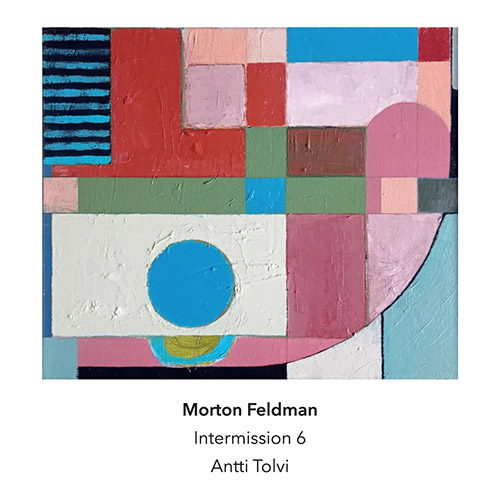


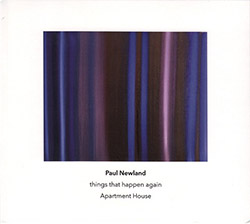
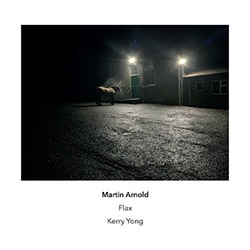
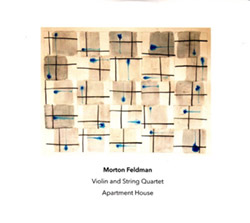
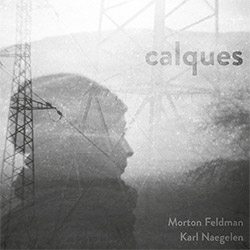
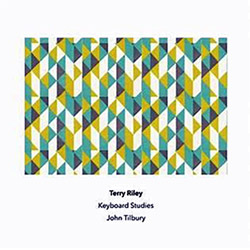

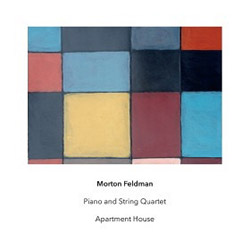
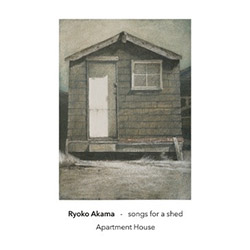
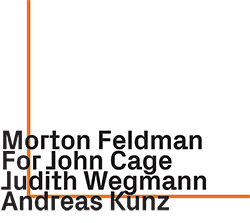
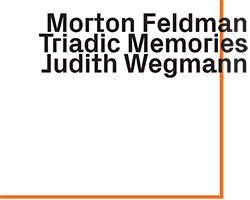

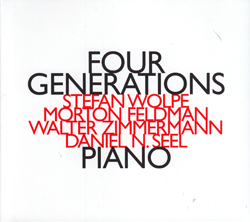

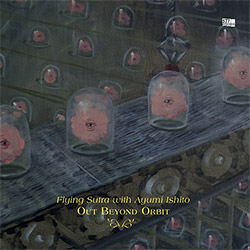





![Necks, The: Disquiet [3 CDs]](https://www.teuthida.com/productImages/misc4/36735.jpg)
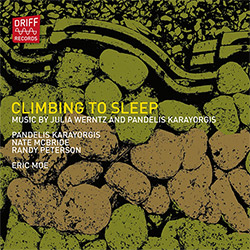
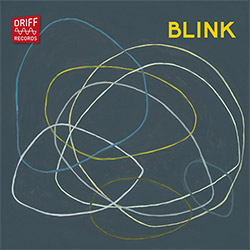


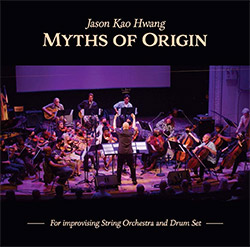
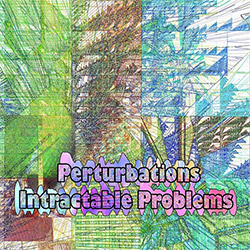
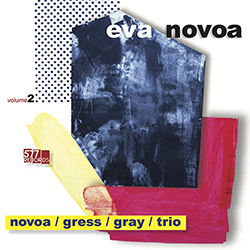

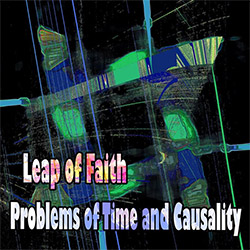
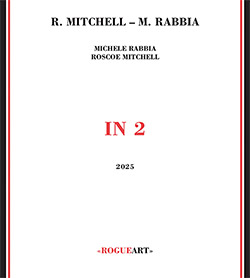
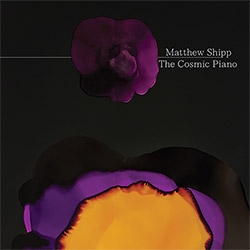
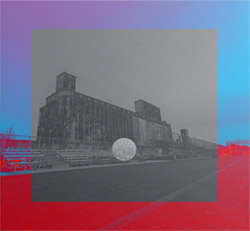
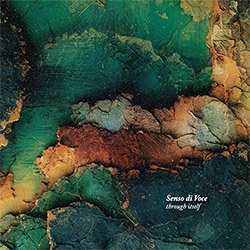
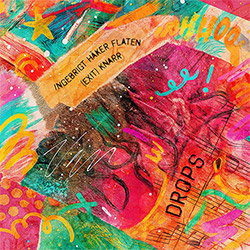
![Haker Flaten, Ingebrigt (Exit) Knarr: Drops [VINYL]](https://www.teuthida.com/productImages/misc4/36809.jpg)
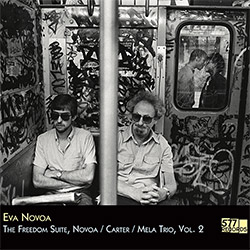


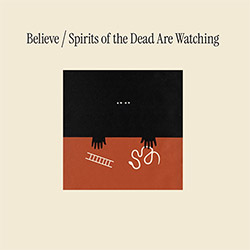


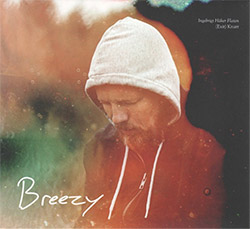
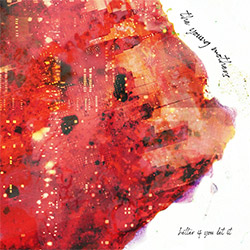
![Young Mothers, The (Haker-Flaten / Rosaly / Taylor / Jackson / Gonzalez / Horne): Better If You Let It [VINYL]](https://www.teuthida.com/productImages/misc4/36806.jpg)
![Doneda, Michel / Frederic Blondy: Points Of Convergences [2 CDs]](https://www.teuthida.com/productImages/misc4/36749.jpg)
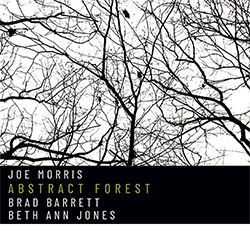

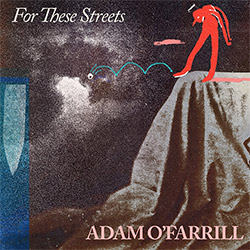
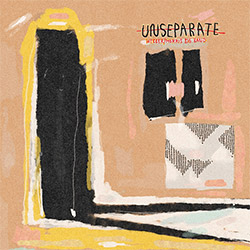

![Schulze, Phillip (w/ Anthony Braxton / Christian Jendreiko / Andrew Raffo Dewar / Detlef Weinrich): Ambassador Duos [DOUBLE VINYL + CD]](https://www.teuthida.com/productImages/misc4/36733.jpg)
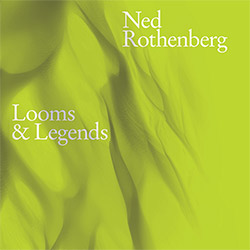


![Normand, Eric: Une Methode (Non Illustree) Pour Jouer La Basse Electrique [BOOK w/ DOWNLOAD]](https://www.teuthida.com/productImages/misc4/36794.jpg)
![Normand, Eric: Dur Temps Pour les Rouges [CASSETTE w/ DOWNLOAD]](https://www.teuthida.com/productImages/misc4/36775.jpg)
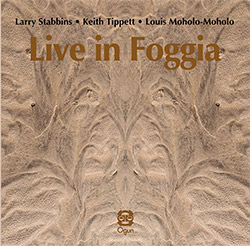

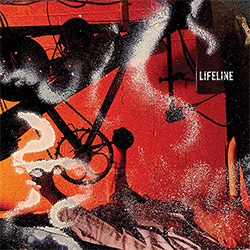





![A Magic Whistle: The Solar Cell [VINYL]](https://www.teuthida.com/productImages/misc4/36658.jpg)

![McGee, Hal: Columbus Expedition [Cassette w/ Download]](https://www.teuthida.com/productImages/misc4/36650.jpg)


![Jaeger, Kassel: Fernweh [VINYL 2 LPs]](https://www.teuthida.com/productImages/misc4/36541.jpg)





![+DOG+: The Light Of Our Lives [2 CDs]](https://www.teuthida.com/productImages/misc4/36009.jpg)


![Eternities: Rides Again [CASSETTE]](https://www.teuthida.com/productImages/misc4/36247.jpg)

![Lopez, Francisco: Untitled (2021-2022) [2 CDs]](https://www.teuthida.com/productImages/misc4/36438.jpg)






![Money : Money 2 [2 CDs]](https://www.teuthida.com/productImages/misc4/35894.jpg)



![Musicworks Magazine: #151 Summer 25 [MAGAZINE + CD]](https://www.teuthida.com/productImages/misc4/36559.jpg)

![Brown, Dan / Dan Reynolds: Live At The Grange Hall [unauthorized][CASSETTE]](https://www.teuthida.com/productImages/misc4/36245.jpg)






![Palestine, Charlemagne / Seppe Gebruers: Beyondddddd The Notessssss [VINYL]](https://www.teuthida.com/productImages/misc4/36206.jpg)
![Palestine, Charlemagne / Seppe Gebruers: Beyondddddd The Notessssss [NEON GREEN VINYL]](https://www.teuthida.com/productImages/misc4/36207.jpg)

![Laubrock, Ingrid: Purposing The Air [2 CDs]](https://www.teuthida.com/productImages/misc4/35639.jpg)

![Yoko, Ono / The Great Learning Orchestra: Selected Recordings From Grapefruit [2 CDs]](https://www.teuthida.com/productImages/misc4/35841.jpg)







![Koenjihyakkei: Live at Club Goodman [2 CDs]](https://www.teuthida.com/productImages/misc4/36111.jpg)

![Sorry For Laughing (G. Whitlow / M. Bates / Dave-Id / E. Ka-Spel): Rain Flowers [2 CDS]](https://www.teuthida.com/productImages/misc4/35985.jpg)

![Rolando, Tommaso / Andy Moor : Biscotti [CASSETTE w/ DOWNLOADS]](https://www.teuthida.com/productImages/misc4/36106.jpg)


![Electric Bird Noise / Derek Roddy: 8-10-22 [CD EP]](https://www.teuthida.com/productImages/misc4/35970.jpg)








![Elephant9 : Mythical River [VINYL]](https://www.teuthida.com/productImages/misc4/34624.jpg)



![Elephant9 with Terje Rypdal: Catching Fire [VINYL 2 LPs]](https://www.teuthida.com/productImages/misc4/35355.jpg)
![Deerlady (Obomsawin, Mali / Magdalena Abrego): Greatest Hits [VINYL]](https://www.teuthida.com/productImages/misc4/34876.jpg)





![Coley, Byron: Dating Tips for Touring Bands [VINYL]](https://www.teuthida.com/productImages/misc4/17906.jpg)

![Lost Kisses: My Life is Sad & Funny [DVD]](https://www.teuthida.com/productImages/misc4/lostKissesDVD.jpg)